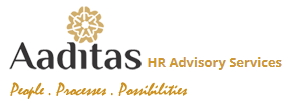



CEB (now Gartner) research reportedly found that managers spend an average of 210 hours per year on employee performance evaluation. Most managers end up spending much of this time in creating reports based on quantity of work rather than focusing on the quality of work, failing to understand that performance evaluation is an objective process to demonstrate the success milestones to an employee, discuss the path to reach there, agree upon development areas and to ascertain appropriate return on investment for the organization.
Twenty-first-century employees are curious to learn and expect development opportunities in their workplace. To help them grow in their role, managers should consider these essentials before conducting an employee performance review:
The most important factor to consider when reviewing performance is employees’ response to the training and development programs they participated in. An appetite to learn is one of the most critical components of employee’s performance/productivity, and offering in-house training to your employees will help you understand whether or not they have that appetite.
Here’s how to identify curious learners:
Efficient employees are the most profitable assets a company has. They know how to maximize productivity, avoid costly mistakes and meet deadlines without compromising the quality of their work.
While efficient employees often stand out from the herd, if you have a large workforce, it may take some effort to identify the most efficient employees. Here’s how to gauge an employee’s efficiency for performance evaluation:
Suppose you are comparing the performance of two employees. Employee A churns out two reports in nine hours, and employee B creates one in the same amount of time. Employee A’s work often needs correction and refinement, which takes another couple of hours. On the other hand, employee B’s work is reliable and often error-free. Who is the better performer?
The most important factor to consider for employee performance evaluation is the quality of work. Relying on the number of working hours or the quantity of work to gauge employee performance can have great repercussions, such as :
Traditional performance management programs that focus on employees’ past performance can reduce employee motivation and productivity. Performance evaluation should be based on their improvement over a period of time.
Performance evaluation should be based on improvement over a period of time.
It’s the manager’s responsibility to help employees grow using an effective performance management program. Such a program can be broken down into four steps:
If your company is not seeing growth in employee productivity, consider changing your performance evaluation system. Change your perspective, and evaluate employees based on the parameters mentioned above to inspire change and growth.
Need our assistance for keeping your top performers on the team? Talk to us! – drop an email to rohan@aaditashr.com